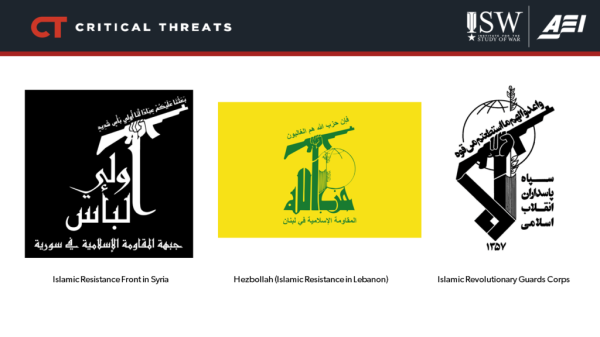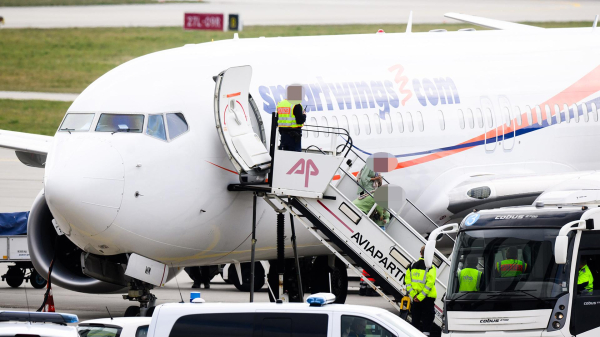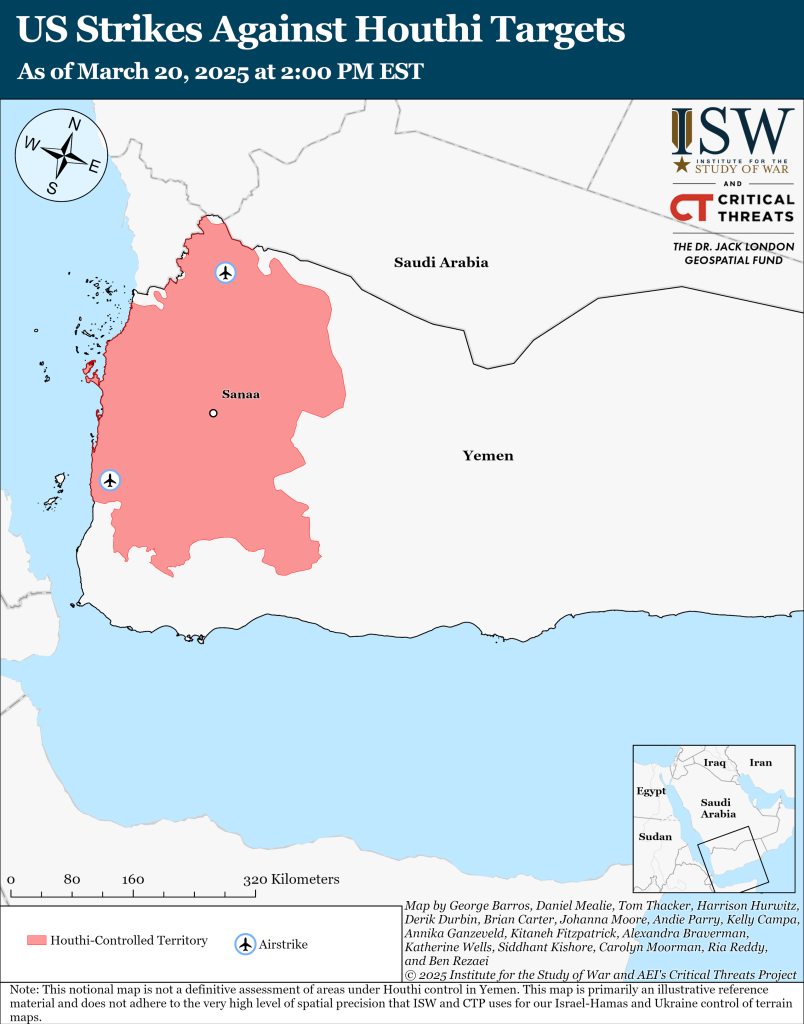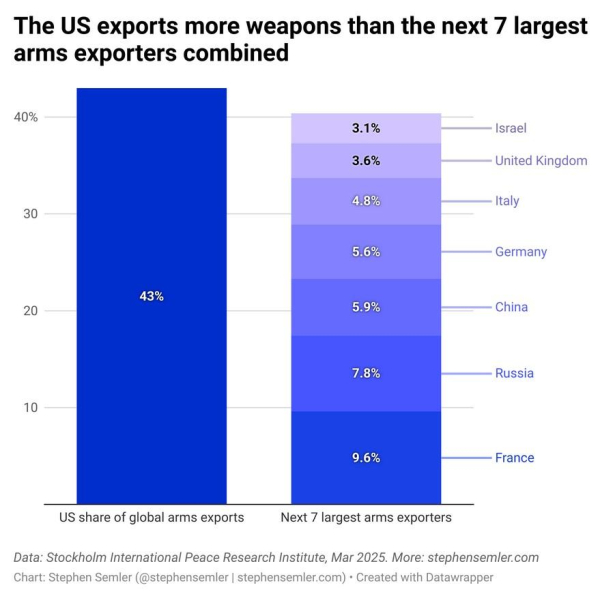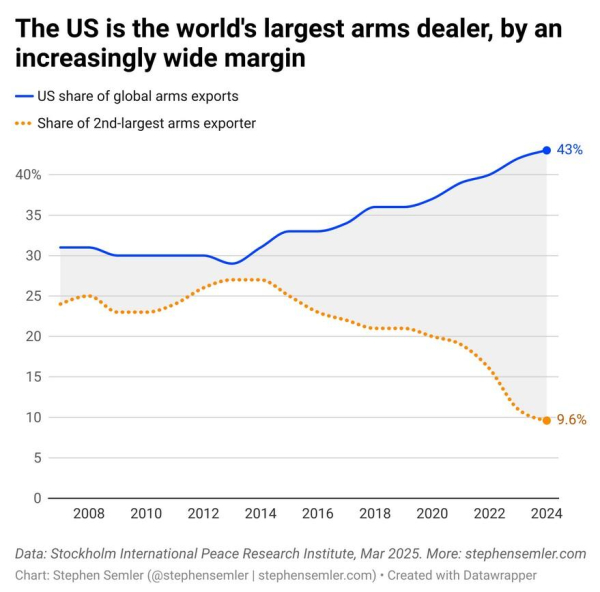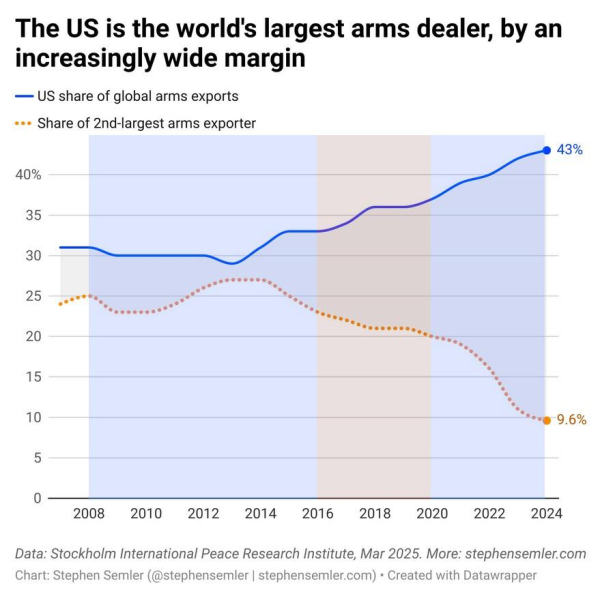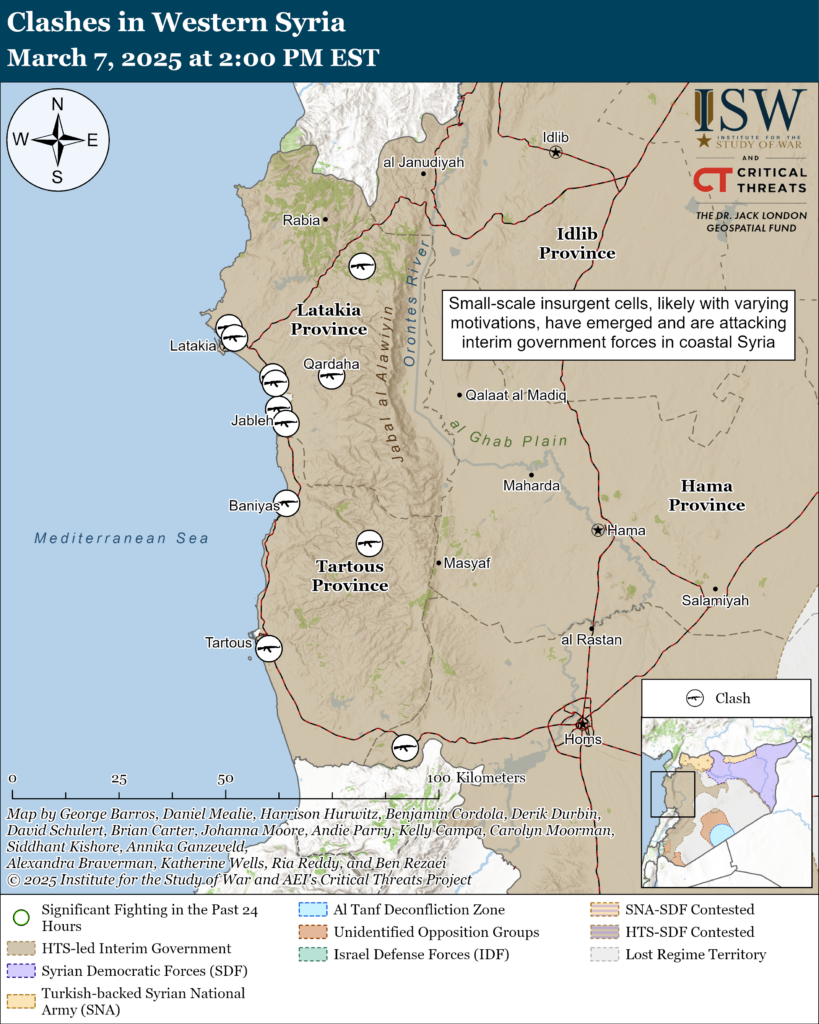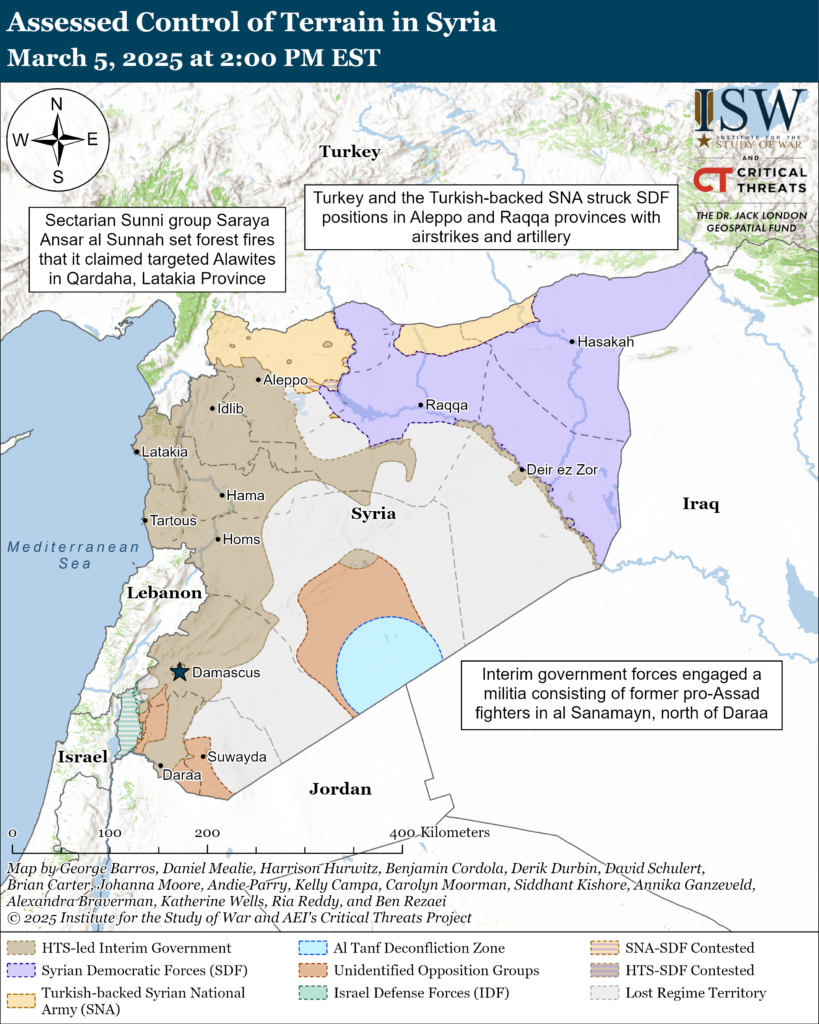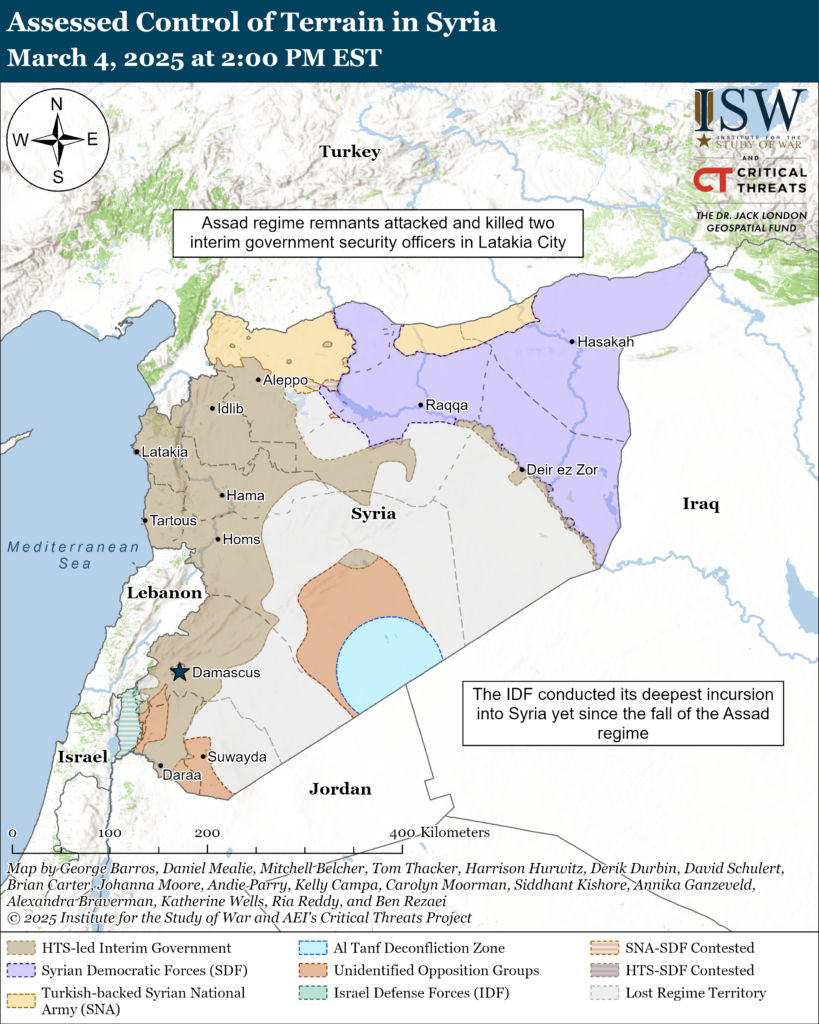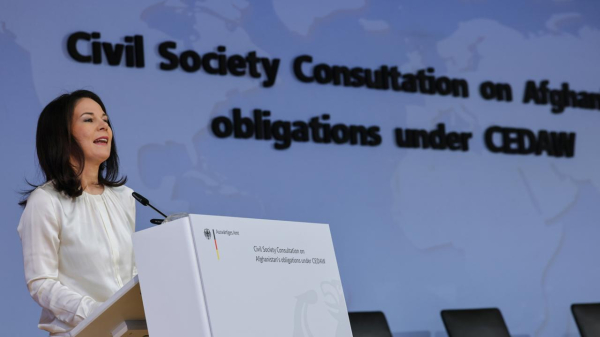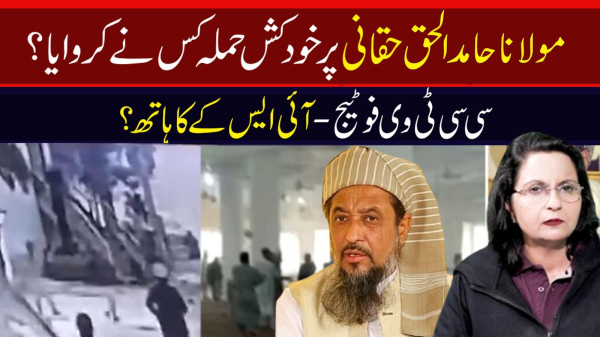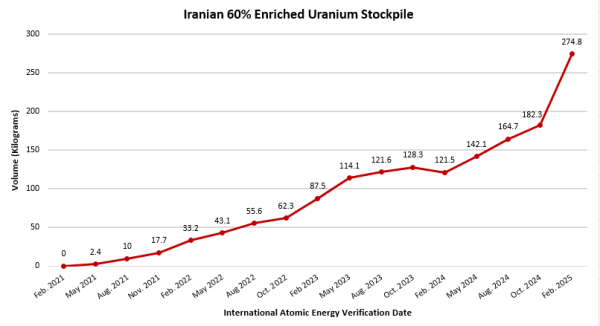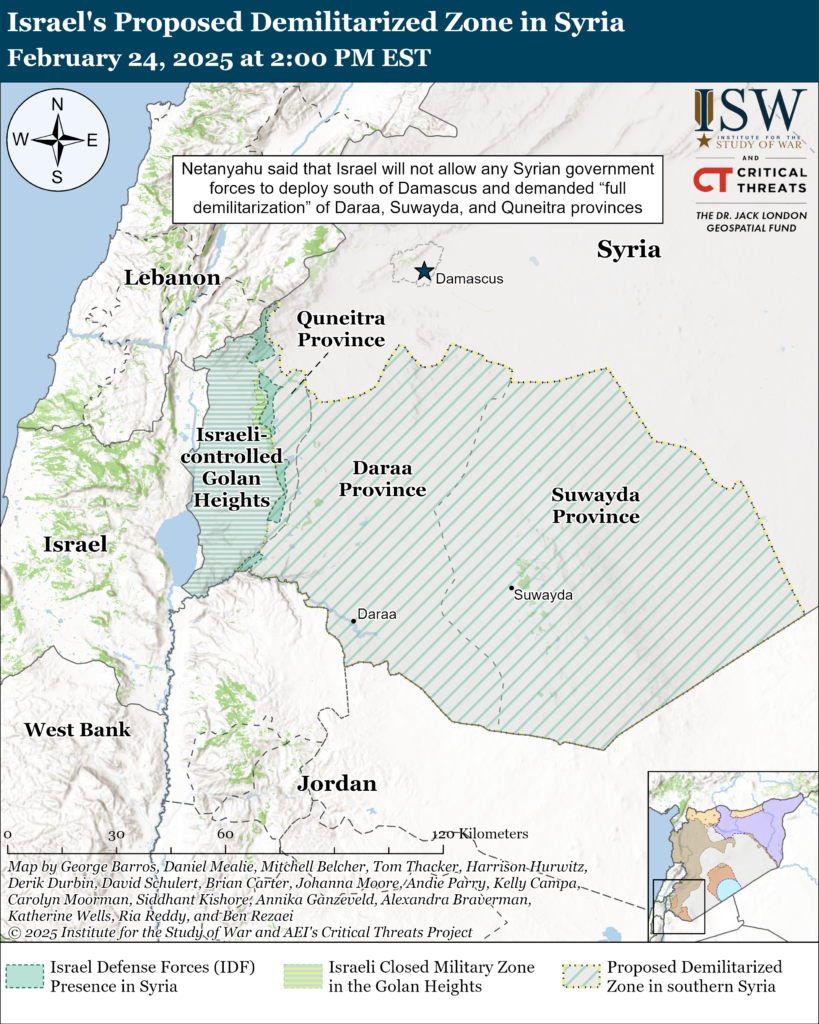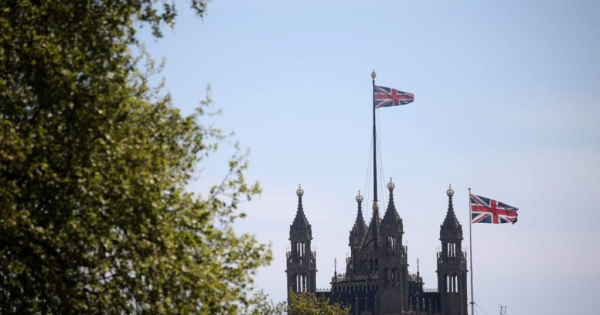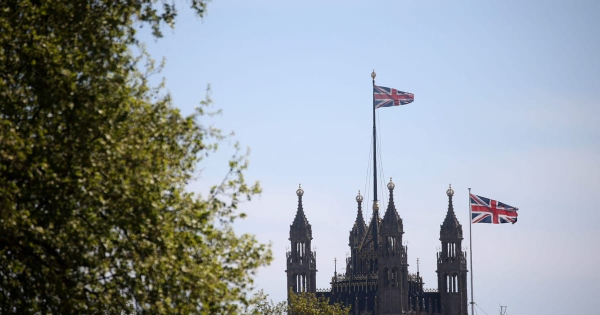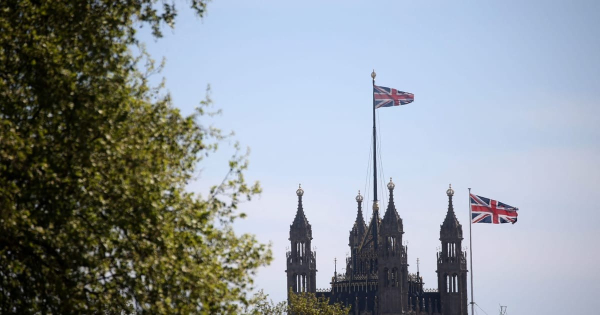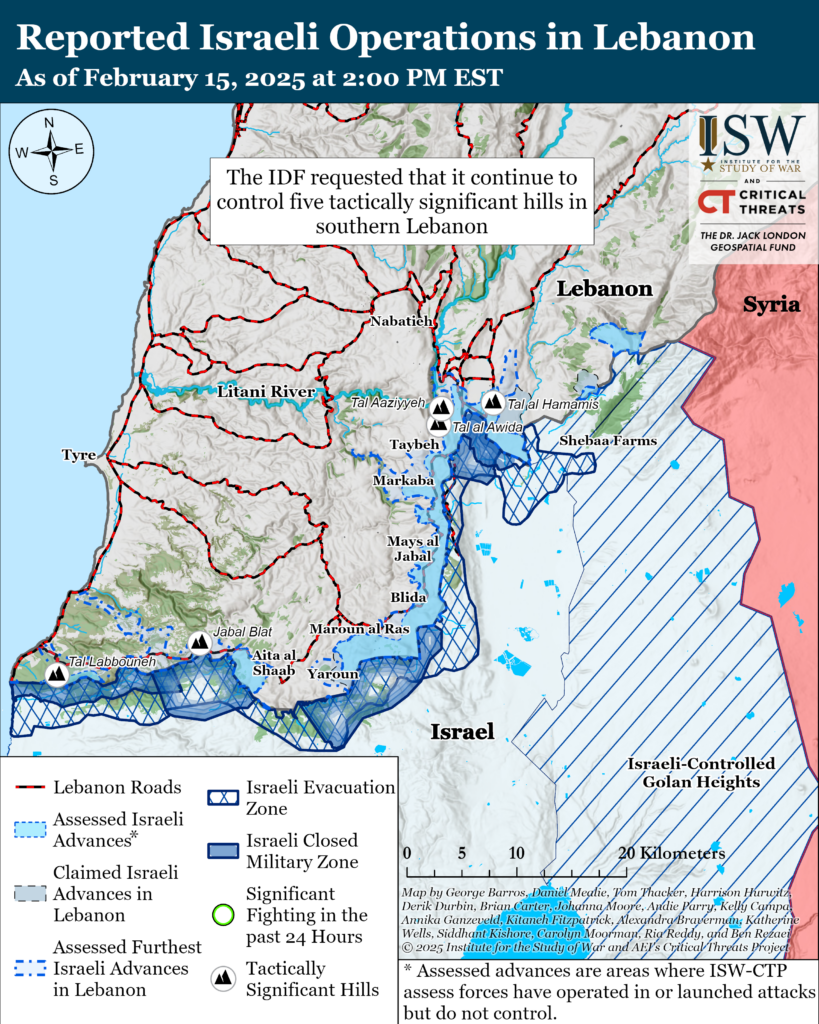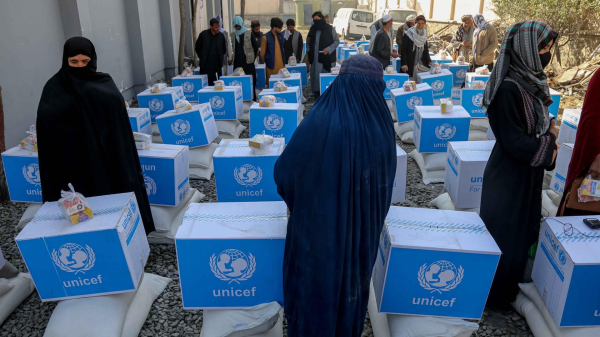Suche
Beiträge, die mit afghanistan getaggt sind
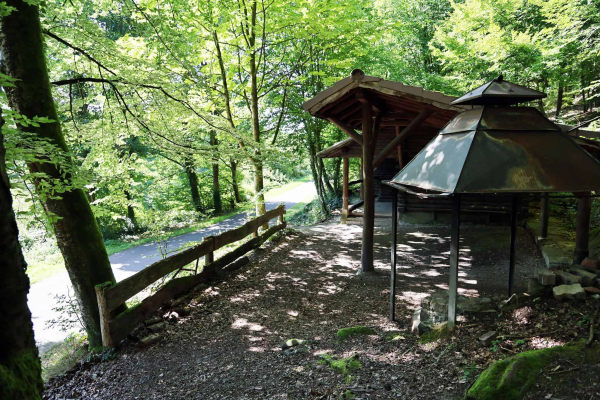
Anklage nach Tötung eines Flüchtlings im Spessart
Ein Migrant wird in Unterfranken getötet, mutmaßlich von einem Ehepaar. Nun gibt es eine Mordanklage.DieNiedersachsen News (DieNiedersachsen.de)
Iran Update, March 27, 2025
Iran Update March 27, 2025 Ria Reddy, Siddhant Kishore, Kelly Campa, Annika Ganzeveld, Carolyn Moorman, Alexandra Braverman, Andie Parry, Katherine Wells, Ben Rezaei, Avery Borens, Alexis Thomas, and Brian Carter Information Cutoff: 2:00 pm ET The Cr…BYTESEU (Bytes Europe)
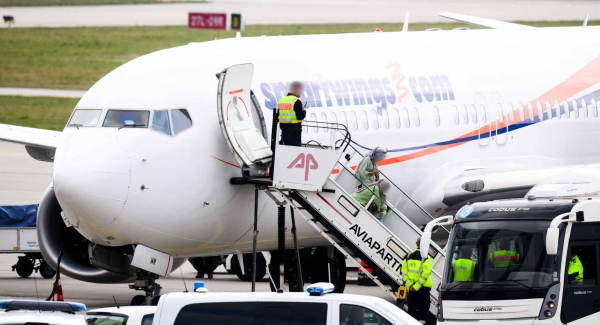
Flugzeug mit Menschen aus Afghanistan landet in Hannover
Ein Flugzeug aus Pakistan bringt Schutz suchende Menschen aus Afghanistan nach Deutschland, darunter viele Kinder. Das Bundesinnenministerium macht eines ganz klar.DieNiedersachsen News (DieNiedersachsen.de)
Seit mehreren Monaten werden immer wieder Menschen aus Afghanistan mit Flugzeugen nach Deutschland gebracht - so auch heute. Im Netz führt das zu Hasspostings und Falschbehauptungen, auch gegen Merz und die CDU.
➡️ https://www.tagesschau.de/faktenfinder/bundesaufnahmeprogramm-afghanistan-106.html?at_medium=mastodon&at_campaign=tagesschau.de
#Afghanistan #Bundesaufnahmeprogramm
https://www.attac.de/startseite/teaser-detailansicht/news/aufnahmeprogramm-retten

Letzte Hoffnung nicht zerstören – Aufnahmeprogramm Afghanistan retten!
44 Organisationen appellieren Bundesaufnahmeprogramm nicht auslaufen zu lassenwww.attac.de
Iran Update, March 20, 2025 - EUROPE SAYS
Iran Update March 20, 2025 Katherine Wells, Carolyn Moorman, Ben Rezaei, Johanna Moorman, Siddhant Kishore, Kelly Campa, AveryEUROPE SAYS (EUROPESAYS.COM)
#Afghanistan 🇦🇫
#Yemen 🇾🇪
#Iran 🇮🇷
#Libya 🇱🇾
#Syria 🇸🇾
#NorthKorea 🇰🇵
#Somalia 🇸🇴
#Bhutan 🇧🇹
#Venezuela 🇻🇪
#Cuba 🇨🇺
#Sudan 🇸🇩
32 additional countries have also received restrictions, although not total outright bans. Follow for updates
What would the #US arms industry do if there was no conflict in the world? Make sure one spark can become a wildfire and then level cities to the ground?
Nah, these things never happen. #sarcasm
(My added) blue/red zones are Democrat/Republican administrations.
The graphs are from here: https://www.stephensemler.com/p/the-us-exports-more-weapons-than
#Gaza #Ukraine #Yugoslavia #Iraq #Afghanistan #USpol #armsIndustry
The US exports more weapons than the next 7 largest arms exporters combined
Polygraph | Newsletter n°293 | 10 Mar 2025Stephen Semler (Polygraph)
Alt: Durf een Syrische vluchteling in huis te halen. Getekend, Marcel Kolder
In #Afghanistan ist es jetzt 1933. #Spendenaufruf #KabulLuftbrücke #frauentag #frauenrechte #Frauenunterdrückung
#Moskau
#Anschlag auf #Synagoge geplant: #FSB erschießt mutmaßlichen #Terroristen
Laut einer staatlichen Nachrichtenagentur wollte der Verdächtige nach der Tat nach #Afghanistan fliehen
https://www.juedische-allgemeine.de/juedische-welt/anschlag-auf-synagoge-geplant-fsb-erschiesst-mutmasslichen-terroristen/
#Judenhass #Islamismus #Antisemitismus #Terrorismus
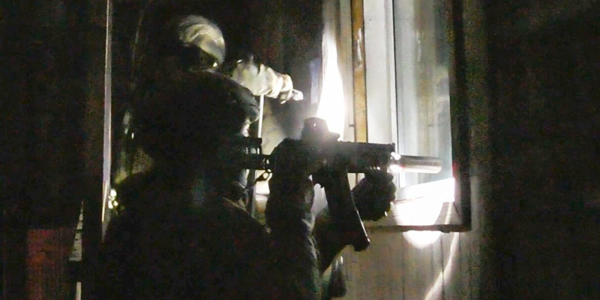
Anschlag auf Synagoge geplant: FSB erschießt mutmaßlichen Terroristen
Laut einer staatlichen Nachrichtenagentur wollte der Verdächtige nach der Tat nach Afghanistan fliehenJüdische Allgemeine
Iran Update, March 7, 2025
Iran Update, March 7, 2025 Kelly Campa, Andie Parry, Alexandra Braverman, Ria Reddy, Katherine Wells, Carolyn Moorman, Siddhant Kishore, Ben Rezaei and Brian Carter Information Cutoff: 2:00 pm ET The Critical Threats Project (CTP) at the American E…BYTESEU (Bytes Europe)
Die Zusage erfolgt nur nach erfolgreicher Absolvierung mehrschrittiger Prüfverfahren, inkl. Sicherheitsüberprüfung.
Deutschland hat ihnen Schutz versprochen – dieses Versprechen darf nicht gebrochen werden.
#Flucht #Asyl
https://www.institut-fuer-menschenrechte.de/aktuelles/detail/schutzbeduerftige-aufnehmen-abschiebungen-menschenrechtlich-nicht-vertretbar

Schutzbedürftige aufnehmen, Abschiebungen menschenrechtlich nicht vertretbar
Menschenrechtsinstitut begrüßt angekündigte Ankunft schutzbedürftiger Menschen aus Afghanistan und spricht sich gegen Abschiebungen nach Afghanistan aus.Institut für Menschenrechte
Iran Update, March 5, 2025
Iran Update, March 5, 2025 Katherine Wells, Johanna Moore, Kelly Campa, Carolyn Moorman, Siddhant Kishore, Annika Ganzeveld, Alexis Thomas, Faris Almaari, George Ekmekjian, and Brian Carter Information Cutoff: 2:00 pm ET The Critical Threats …BYTESEU (Bytes Europe)
Erneut hat ein Charterflugzeug von Verfolgung bedrohte Afghaninnen und Afghanen nach Deutschland gebracht, die eine Aufnahmezusage haben. An Bord waren 132 Passagiere. 25 Personen durften kurzfristig doch nicht mitfliegen.
➡️ https://www.tagesschau.de/inland/flug-afghanistan-100.html?at_medium=mastodon&at_campaign=tagesschau.de
#Afghanistan #Aufnahmeprogramm
Die #Menschenrechtslage ist nach wie vor verheerend. Besonders schutzbedürftige Personen wie Frauen und Mädchen, Menschen- und Frauenrechtler*innen oder Journalist*innen sind in großer Gefahr.
Generell gilt: Abschiebungen in Herkunftsländer, in denen Menschen #Folter oder eine unmenschliche oder erniedrigende Behandlung droht, widersprechen dem menschenrechtlichen #Zurückweisungsverbot der europäischen #Menschenrechtskonvention.
https://www.institut-fuer-menschenrechte.de/aktuelles/detail/schutzbeduerftige-aufnehmen-abschiebungen-menschenrechtlich-nicht-vertretbar

Schutzbedürftige aufnehmen, Abschiebungen menschenrechtlich nicht vertretbar
Menschenrechtsinstitut begrüßt angekündigte Ankunft schutzbedürftiger Menschen aus Afghanistan und spricht sich gegen Abschiebungen nach Afghanistan aus.Institut für Menschenrechte
Iran Update, March 4, 2025
Katherine Wells, Alexandra Braverman, Carolyn Moorman, Andie Parry, Ria Reddy, Siddhant Kishore, Kelly Campa, Parker Hempel, Faris Almaari, Annika Ganzeveld, and Nicholas Carl March 4, 2025, Information Cutoff: 2:00 pm ET The Critical Threats Proje…BYTESEU (Bytes Europe)
"While decades of war means that Afghanistan faces unique challenges, it’s not the only country that has been inundated with severe rain since the start of 2024. Extreme flooding this spring has displaced nearly a quarter million people in East Africa and half a million in southern Brazil."
https://truthout.org/articles/flash-flooding-kills-more-than-300-in-climate-vulnerable-afghanistan/
“With the latest incident, Afghanistan joins a long list of Global South countries grappling with floods this year. And this is as the world continues funding the climate crisis by expanding fossil fuels and industrial agriculture.” (Teresa Anderson)
#Afghanistan #FlashFlood #Climate #ClimateChange
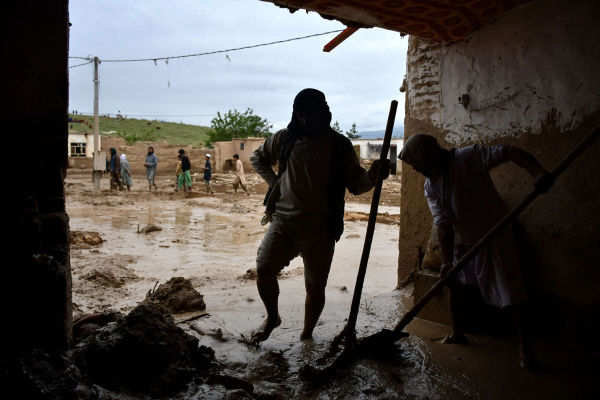
Flash Flooding Kills More Than 300 in Climate-Vulnerable Afghanistan
The severe floods came on the heels of an extreme drought in one of the world’s most climate-vulnerable nations.Olivia Rosane (Truthout)
Mit der Machtübernahme der Taliban begann vor allem für Frauen in Afghanistan eine dunkle Zeit. Deutschland und andere Länder haben nun eine Initiative gestartet - und dafür auch die Taliban kontaktiert. Von Gabor Halasz.
➡️ https://www.tagesschau.de/inland/innenpolitik/bundesregierung-taliban-frauenrechte-100.html?at_medium=mastodon&at_campaign=tagesschau.de
#Afghanistan #Taliban
Die Menschenrechtslage in Afghanistan ist nach wie vor verheerend. Besonders schutzbedürftige Personen wie Frauen und Mädchen, Menschen- und Frauenrechtler*innen, Journalist*innen, ehemalige Staatsanwält*innen und Richter*innen sind in großer Gefahr.
Pressemitteilung:
https://www.institut-fuer-menschenrechte.de/aktuelles/detail/schutzbeduerftige-aufnehmen-abschiebungen-menschenrechtlich-nicht-vertretbar

Schutzbedürftige aufnehmen, Abschiebungen menschenrechtlich nicht vertretbar
Menschenrechtsinstitut begrüßt angekündigte Ankunft schutzbedürftiger Menschen aus Afghanistan und spricht sich gegen Abschiebungen nach Afghanistan aus.Institut für Menschenrechte
https://youtu.be/0YOPVW95ANE
Is U.S possible boots on ground in Afghanistan can be a reason? Security lapse. Maulana Hamid Ul Haq: victim of vested interests?
#israel -K #securitybreach #haqqania #suicide #bombblast #afghanistan #terrorism #terrorisminpakistan #maulana
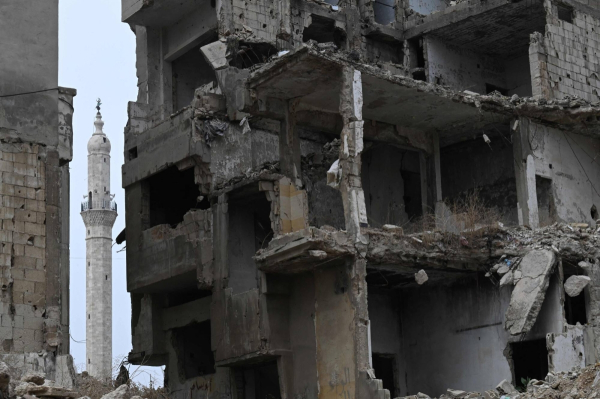
'Total panic' as USAID cuts jobs from Syria to Haiti
In 2023, USAID spent $42 billion to support programs across 157 countries — ranging from malaria and HIV prevention to fighting starvation and helping those displaced by war.Nita Bhalla (The Japan Times)
Iran Update, February 26, 2025
Iran Update, February 26, 2025 Ria Reddy, Annika Ganzeveld, Johanna Moore, Siddhant Kishore, Carolyn Moorman, Ben Rezaei, Katherine Wells, and Brian Carter Information Cutoff: 2:00 pm ET The Critical Threats Project (CTP) at the American Ente…BYTESEU (Bytes Europe)
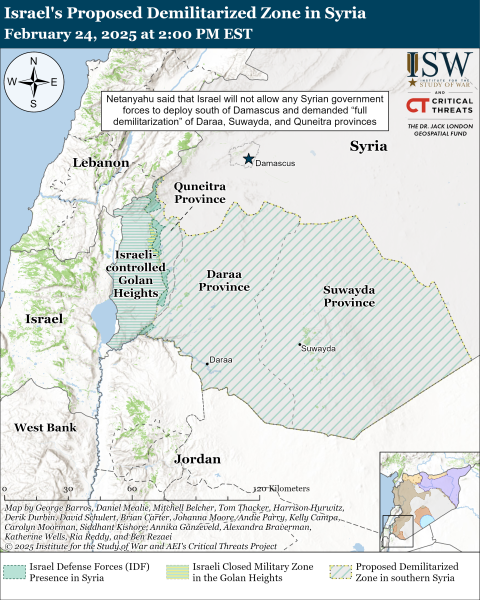
Iran Update, February 24, 2025 - EUROPE SAYS
Iran Update, February 24, 2025 Kelly Campa, Siddhant Kishore, Annika Ganzeveld, Andie Parry, Ria Reddy, Carolyn Moorman,EUROPE SAYS (EUROPESAYS.COM)
Iran Update, February 24, 2025
Iran Update, February 24, 2025 Kelly Campa, Siddhant Kishore, Annika Ganzeveld, Andie Parry, Ria Reddy, Carolyn Moorman, Katherine Wells, Ben Rezaei, Avery Borens, Parker Hempel, and Brian Carter Information Cutoff: 2:00 pm ET The Critical Threats …BYTESEU (Bytes Europe)
https://www.sydneycriminallawyers.com.au/blog/this-is-not-just-about-david-lawyer-eddie-lloyd-on-the-forthcoming-mcbride-appeal/
https://t.me/AntifascistSolidarity/51664
#adfa #adf #australia #wariscapitalism #waristerror #military #army #navy #airforce #classwar #genocide #ausgov #auspol #tasgov #taspol #politas #fascism #oppression #repression #statism #colonialism #imperialism #usa #america
By Yana Kunichoff
Published December 11, 2009
"New details of Blackwater participation in clandestine CIA raids detail the extent to which private security contractors were involved in covert government antiterror operations.
"According to former employees and current and former American intelligence officials, who agreed to speak on condition of anonymity because they feared repercussions, Blackwater security guards participated in clandestine raids to capture or kill suspected insurgents in #Iraq and #Afghanistan and in transportation of detainees on CIA flights.
"The raids against suspects were said to occur almost nightly between 2004 and 2006, the height of the Iraqi insurgency. Several of the former Blackwater employees said the lines dividing the government-sanctioned agencies (the CIA and the military) and Blackwater began to blur.
"This information highlights a more extensive relationship between the CIA and Blackwater, now re-named Xe Services, than government investigation had previously acknowledged.
"This was confirmed recently by an article about #ErikPrince, the founder of Blackwater, published in Vanity Fair. In it, Prince spoke about the extent of his involvement with the CIA, which ranged from putting together, funding and executing operations to bring personnel into 'denied areas' to targeting specific people for #assassination who were deemed enemies by the #USGovernment.
"Though Prince alleged that he participated as a private citizen and used his personal funds to carry out operations, the Blackwater employees interviewed by The New York Times confirmed both their full knowledge of and participation in the raids.
"#Xe spokesman Mark Corallo, however, continued to deny this."
Full article:
https://truthout.org/articles/extent-of-blackwater-and-cia-collaboration-uncovered/
#TigerSwan #BigOil #HumanRights #Covert #Corporatism #Corporatocracy #Corruption #Capitalism #Colonialism
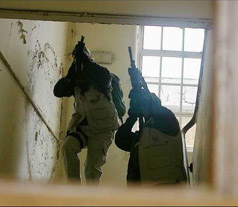
Extent of Blackwater and CIA Collaboration Uncovered
New details of Blackwater participation in clandestine CIA raids detail the extent to which private security contractors were involved in covert government…Yana Kunichoff (Truthout)
British MPs already want a vote on sending troops to Ukraine – POLITICO
But they said the administration said they won't 'get ahead' of itself. POLITICO asked Starmer on a trip to Kyiv last month if he'd commit to a vote on any British peacekeepers. He declined to give such a commitment.BYTESEU (Bytes Europe)
British MPs already want a vote on sending troops to Ukraine – POLITICO - EUROPE SAYS
But they said the administration said they won't 'get ahead' of itself. POLITICO asked Starmer on a tripEUROPE SAYS (EUROPESAYS.COM)
British MPs already want a vote on sending troops to Ukraine – POLITICO - EUROPE SAYS
But they said the administration said they won't 'get ahead' of itself. POLITICO asked Starmer on a tripEUROPE SAYS (EUROPESAYS.COM)
Iran Update, February 15, 2025
Iran Update, February 15, 2025 Siddhant Kishore, Alexandra Braverman, Ben Rezaei, Kelly Campa, and Brian Carter Information Cutoff: 2:00 pm ET The Critical Threats Project (CTP) at the American Enterprise Institute and the Institute for the Study o…BYTESEU (Bytes Europe)
Dreieinhalb Jahre nach dem chaotischen Abzug westlicher Truppen aus Afghanistan ist die Lage dort prekär. Frauenrechte werden immer stärker eingeschränkt, die wirtschaftliche Not ist groß. Nun fällt auch noch US-Hilfe weg. Von F. Amler.
➡️ https://www.tagesschau.de/ausland/asien/afghanistan-lage-taliban-100.html?at_medium=mastodon&at_campaign=tagesschau.de
#Afghanistan #Taliban

Abschiebung nach Afghanistan? Niedersachsen «vorbereitet»
Straftäter im Fokus: Nach der Tat von München wird wieder über Abschiebungen nach Afghanistan diskutiert. Erneut könnten Menschen aus Niedersachsen betroffen sein.DieNiedersachsen News (DieNiedersachsen.de)
Botschaft des Heiligen Vaters zur 6. Internationalen Konferenz für das Gleichgewicht der Welt [Havanna, 28.-31. Januar 2025]
Botschaft des Heiligen Vaters zur 6. Internationalen Konferenz für das Gleichgewicht der Welt [Havanna, 28.-31. Januar 2025] - Veranstaltungen mit dem Heiligen VaterVatican.va

